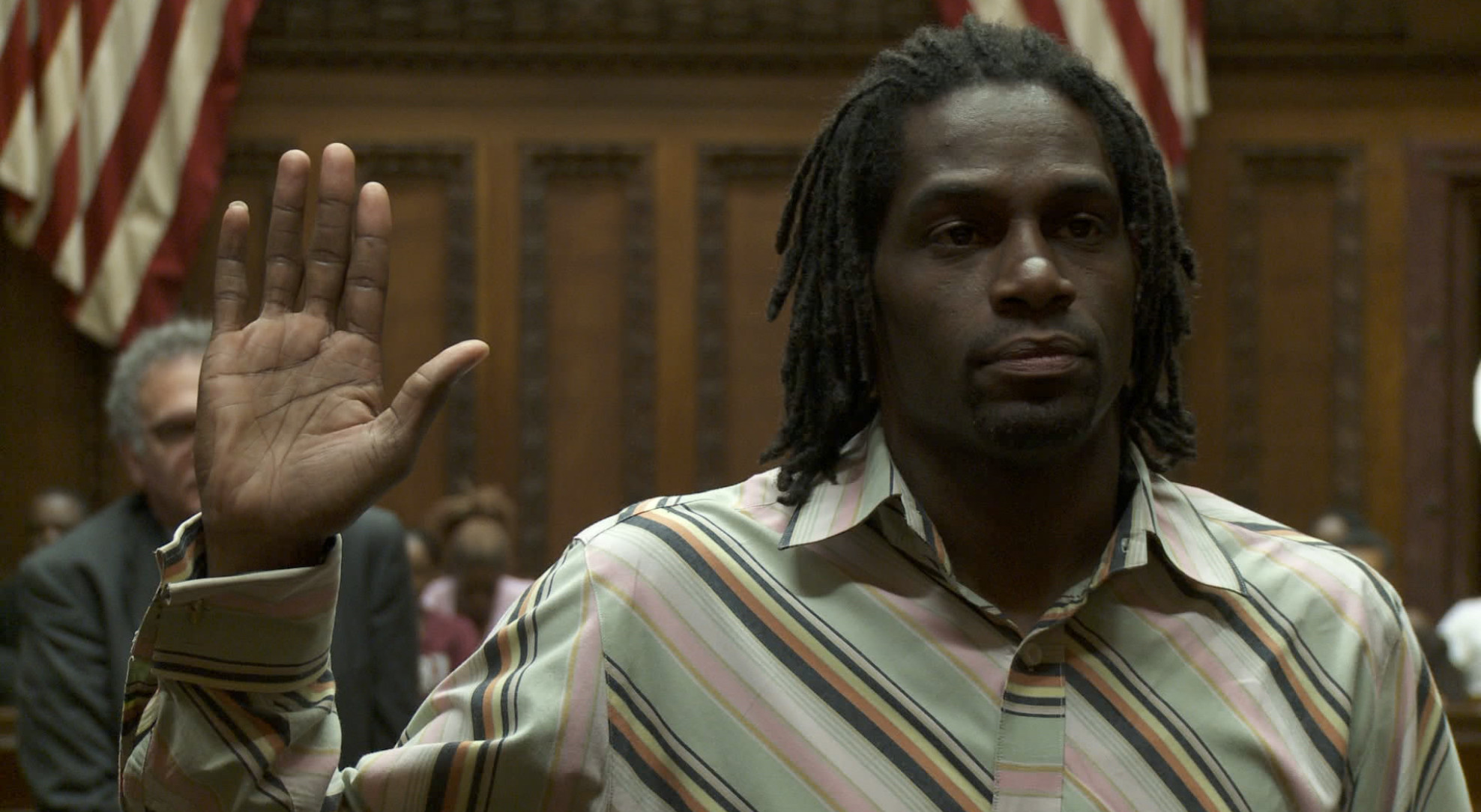Cleveland versus Wall Street
Jean-Stéphane Bron

© Les Films du Losange
On 11 January 2008, Josh Cohen and his associates, lawyers for the city of Cleveland, sued the 21 banks they deemed responsible for the foreclosures devastating their city. But the Wall Street banks they were attacking opposed the opening of proceedings by every means possible. Cleveland Versus Wall Street tells the story of a trial that should have taken place. A cinematic trial, whose story, protagonists and testimonies are very real.
Scenario : Jean-Stéphane Bron
Cinematography : Séverine Barde, Julien Hirsch
Sound : Jean-Paul Mugel
Editing : Simon Jacquet
Cinematography : Séverine Barde, Julien Hirsch
Sound : Jean-Paul Mugel
Editing : Simon Jacquet
Production : Saga-Productions, Les Films Pelléas
Distribution : Les Films du Losange
Distribution : Les Films du Losange
Documentary or fiction? Since we have to tick boxes, we’ll put documentary. But to be honest, it’s debatable. When in doubt, we should have abstained. Unpopular with codifiers, doubt is, on the other hand, permissible, even advisable, for creators. It gives Cleveland Versus Wall Street a stimulating virtue, both politically and artistically.
The film’s director, Jean-Stéphane Bron, one of the most vigorous Swiss documentary filmmakers of the moment, crossed a few lakes to get to Cleveland, Ohio, United States, where on 11 January 2008 the city took legal action against 21 Wall Street banks, which the municipality held responsible for thousands of property expropriations resulting from their risky lending policies. Jean-Stéphane Bron, to put it another way, arrived in Cleveland at the height of the subprime crisis, the consequences of which – a global financial crisis the likes of which had not been seen since 1929 – are sadly well known. This is what you might call having a nose for a story: a golden opportunity, if you will, for any documentary filmmaker, especially since the legal action brought by the city of Cleveland was unprecedented. But if truth be told reality is sometimes the enemy of the documentary filmmaker. The proceedings, blocked by the legal arguments of a string of lawyers paid by the banks, are still pending. At the time of the film’s world premiere on French screens, not only had the trial not taken place, but it is far from certain that it ever will. Never mind. In the absence of a trial, Jean-Stéphane Bron, with the agreement of the municipality and the civil parties, made it possible for the purposes of his film. A cinema trial, then, but not a fake trial. Because everything in it is rigorously true. The courthouse, made available by the city, the law firm hired by it, the victims, the actors, the witnesses, and even the intrepid lawyer who came from Chicago to speak on behalf of the banks, which did not play along. (...) (Jacques Mandelbaum; Le Monde)
The film’s director, Jean-Stéphane Bron, one of the most vigorous Swiss documentary filmmakers of the moment, crossed a few lakes to get to Cleveland, Ohio, United States, where on 11 January 2008 the city took legal action against 21 Wall Street banks, which the municipality held responsible for thousands of property expropriations resulting from their risky lending policies. Jean-Stéphane Bron, to put it another way, arrived in Cleveland at the height of the subprime crisis, the consequences of which – a global financial crisis the likes of which had not been seen since 1929 – are sadly well known. This is what you might call having a nose for a story: a golden opportunity, if you will, for any documentary filmmaker, especially since the legal action brought by the city of Cleveland was unprecedented. But if truth be told reality is sometimes the enemy of the documentary filmmaker. The proceedings, blocked by the legal arguments of a string of lawyers paid by the banks, are still pending. At the time of the film’s world premiere on French screens, not only had the trial not taken place, but it is far from certain that it ever will. Never mind. In the absence of a trial, Jean-Stéphane Bron, with the agreement of the municipality and the civil parties, made it possible for the purposes of his film. A cinema trial, then, but not a fake trial. Because everything in it is rigorously true. The courthouse, made available by the city, the law firm hired by it, the victims, the actors, the witnesses, and even the intrepid lawyer who came from Chicago to speak on behalf of the banks, which did not play along. (...) (Jacques Mandelbaum; Le Monde)
